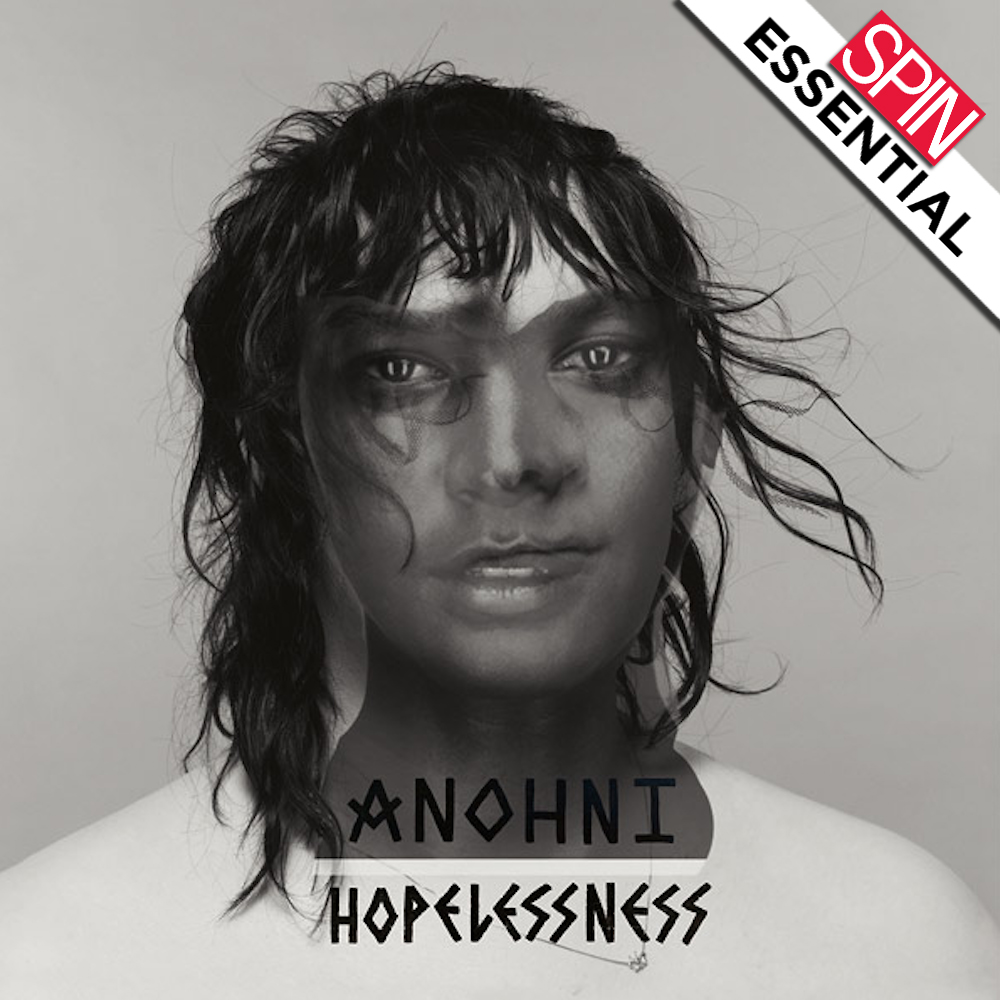Release Date: May 06, 2016
Label: Secretly Canadian/Rough Trade
If you were lucky enough to move to New York City in the early 2000s — just around the time that bands like the Strokes and the Yeah Yeah Yeahs were giving downtown a justly deserved kick in the balls — you might have also been lucky enough to see Antony and the Johnsons performing somewhere like the Knitting Factory or the Kitchen. Even moreso than the rock bands of the era, seeing Antony Hegarty (now known simply as ANOHNI) performing in a dingy bar was actually the stuff fabled NYC dreams are made of. To see this mysterious, gender-indeterminate figure with the voice of an angel singing Angelo Badalamenti covers to a room full of queer degenerates such as myself was both inspiring and life-giving: It was the reason people like me came to this city, to rub elbows with the kind of people that simply could not exist anywhere else.
To see ANOHNI’s transition — both literally and figuratively — from a kind of beloved downtown doyenne to an internationally beloved outsider artist has been both amazing and completely surreal. Since the release of 2005’s I Am a Bird Now, ANOHNI has inhabited a kind of rarefied creative space usually reserved only for people like Björk — another artist whose creative acumen (and distinctive singing voice) are completely singular. As her creative output continued to dazzle (via 2009’s The Crying Light and 2010’s Swanlights), she seemed increasingly farther and farther away from the downtown scene that spawned her. Her music became more ornate, more precious, and so deeply ethereal that it felt, at times, oddly unrelatable. Despite a propensity for addressing both deep love and profound sadness, it still was as if the songs were being beamed in from some alternate, more immaculate universe.
Hopelessness is ANOHNI’s first new studio album in almost six years and it bears little resemblance to the chamber-pop ebullience of her previous work. Featuring music and production courtesy of Hudson Mohawke’s Ross Birchard and Oneohtrix Point Never’s Daniel Lopatin, Hopelessness is a wholly electronic album that puts ANOHNI in the role of beleaguered revolutionary. The album’s 11 tracks cast a wide net, taking on topics such as drone warfare, climate change, criminal execution, the failures of representational government, and — more pointedly — the failure of the Obama administration. It’s both a thrilling record and an occasionally confounding one; a statement that often invokes tightly controlled rage as a means of slapping the listener out of what one imagines has become our collective stupor. In short, it’s a protest record.
In a recent interview with Pitchfork, ANOHNI explained the emotional impetus behind Hopelessness by saying, “Rage is a really fun place to dance from — expressions of anger sublimated into something beautiful are invigorating, especially if you feel like you’re telling the truth.” In keeping with this idea, the best songs on Hopelessness also happen to be the most vitriolic. The record’s first single, “4 Degrees,” is a brutal self-indictment in regards to environmental disaster in which she sings, “I want to hear the dogs crying for water / I want to see the fish go belly-up in the sea / And all those lemurs and all those tiny creatures / I want to see them burn / It’s only four degrees!” Backed by the banging of volcanic drums and synths that erupt like blasting sirens, ANOHNI’s voice sounds as fittingly tremulous as it ever has, and the song, while possibly the most brutal on the record, is also the closest thing Hopelessness has to something resembling a conventional dance single.
Those hoping that an electronic ANOHNI record might offer something in the vein of “Blind” (her beloved, disco-funked 2008 collaboration with Hercules and Love Affair) will likely be disappointed. Still, even though the electronic soundscapes on the record often feel more like perfunctory backdrops for these message-oriented songs than they do invitations to dance, there is something electrifying about hearing her remarkable voice fluttering up against computerized beats.
The best songs on Hopelessness are those that manage to come at their political ideas from interesting angles. Set against chiming, celestial synths, “Drone Bomb Me” addresses the titular bomb as if it were a lover, pleading to for the drone to come and “Blow me from the side of the mountain / Blow my head off / Explode my crystal guts / Let me be the one you choose tonight,” while on “Execution” ANOHNI asks, “Please don’t have mercy on me” in regards to the “American dream” of being summarily put to death. Likewise, on “Watch Me,” the threat of constant surveillance is addressed as an ever-present “Daddy” — someone who protects us from child molesters and terrorism while also monitoring our medical records and peeking over our shoulder while we watch porn.
On “Crisis” the speaker is once again complicit in a long list of atrocities, which includes a mention of Guantanamo and the ever-present specter of flying drones. “I’m sorry,” ANOHNI repeats over and over as the music breaks up and swells around her, knowing that such apologies are always useless after the fact. “How did I become a virus?” she asks on the sprawling “Hopelessness,” speaking not just for herself or on behalf of an imperialist America, but for everyone. In regards to the current state of global devastation that the album so thoroughly explores, no one gets off the hook.
Though it would still be a potent political statement, Hopelessness would be something of a joyless slog if the music weren’t so gorgeous, matching the intensity of the subject matter without overwhelming it and giving the appropriate space to ANOHNI’s voice, which remains a glorious instrument. What the record may occasionally lack in subtlety — “Obama,” is less a song than a single-note takedown of the president — it makes up for in moments of sheer, visceral beauty. Even though there is a blank nihilism at play in some of these songs, Hopelessness is not about throwing up one’s hands in surrender. It’s actually the opposite of that. It is a kind of protracted scream that begs the listener to stop, look, and really listen.





